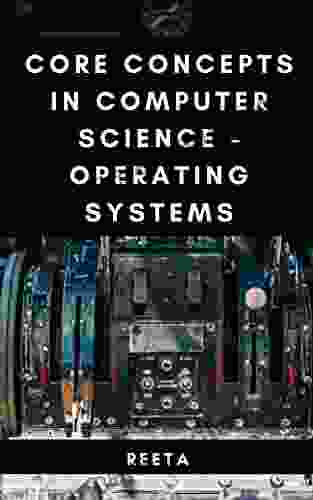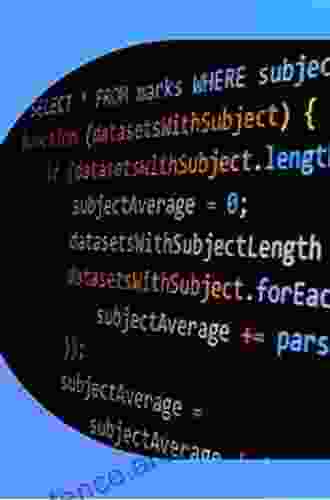Core Concepts in Computer Science: A Comprehensive Guide to Operating Systems

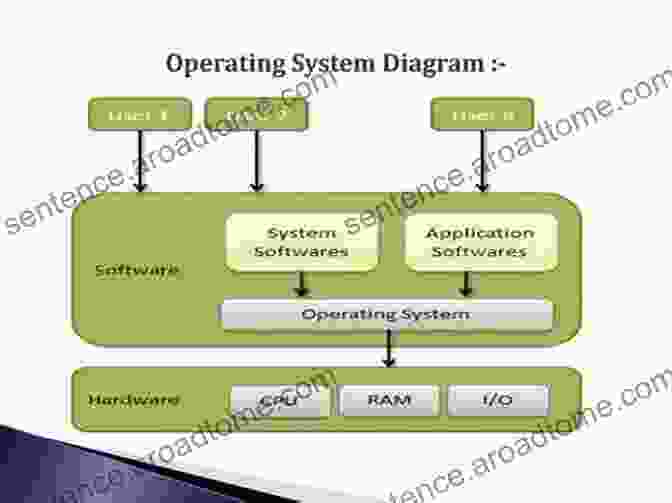
Operating systems are the foundation upon which all other software runs. They are responsible for managing the hardware and software resources of a computer system, and they provide the interface between the user and the computer. Understanding the core concepts of operating systems is essential for anyone who wants to work in the field of computer science.
5 out of 5
| Language | : | English |
| File size | : | 496 KB |
| Text-to-Speech | : | Enabled |
| Screen Reader | : | Supported |
| Enhanced typesetting | : | Enabled |
| Print length | : | 15 pages |
| Lending | : | Enabled |
This article will provide a comprehensive overview of the core concepts of operating systems. We will discuss the following topics:
* What is an operating system? * The history of operating systems * The different types of operating systems * The components of an operating system * The functions of an operating system * The challenges of designing and implementing operating systems
What is an Operating System?
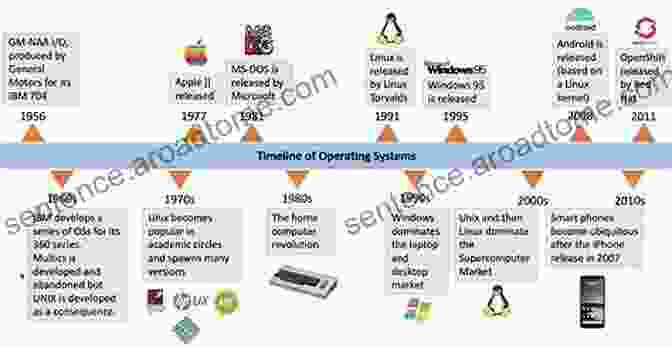
An operating system is a system software that manages computer hardware and software resources and provides common services for computer programs. Operating systems are found on many devices that contain a computer, from cellular phones and digital cameras to web servers and supercomputers. All general purpose computers use an operating system.
The operating system acts as an intermediary between the user and the computer hardware. It provides the user with a set of tools and services that make it easier to interact with the computer. These tools and services include:
* A graphical user interface (GUI) * A command-line interface (CLI) * A file system * A memory manager * A process manager * A network manager * A security manager
The operating system also provides a set of system calls that allow user programs to interact with the hardware. These system calls provide access to the file system, the memory manager, the process manager, the network manager, and the security manager.
The History of Operating Systems
The first operating systems were developed in the early 1950s. These operating systems were very simple, and they only provided a few basic services, such as job scheduling and memory management. However, as computers became more powerful, operating systems became more complex.
In the 1960s, operating systems began to support multitasking. This allowed multiple programs to run at the same time. This was a major improvement, as it made it possible to use computers more efficiently.
In the 1970s, operating systems began to support virtual memory. This allowed programs to access more memory than was physically available. This was another major improvement, as it made it possible to run larger programs.
In the 1980s, operating systems began to support graphical user interfaces (GUIs). This made it easier for users to interact with computers.
In the 1990s, operating systems began to support networking. This allowed computers to communicate with each other.
In the 2000s, operating systems began to support mobile devices. This made it possible to use computers on the go.
Today, operating systems are essential for all computers. They provide the foundation upon which all other software runs.
The Different Types of Operating Systems
There are many different types of operating systems available. The most popular operating systems include:
* Windows * macOS * Linux * Unix * Android * iOS
Each of these operating systems has its own strengths and weaknesses. Windows is the most popular operating system in the world. It is easy to use, and it has a wide range of software available. macOS is the operating system used on Apple computers. It is known for its user-friendly interface and its stability. Linux is a free and open-source operating system. It is known for its security and its reliability. Unix is a powerful operating system that is used on many servers. Android is the operating system used on most Android smartphones and tablets. iOS is the operating system used on Apple iPhones and iPads.
The type of operating system that you choose will depend on your needs. If you need an operating system that is easy to use and has a wide range of software available, then Windows is a good choice. If you need an operating system that is stable and secure, then macOS or Linux is a good choice.
The Components of an Operating System
An operating system consists of the following components:
* The kernel * The system libraries * The user interface
The kernel is the core of the operating system. It is responsible for managing the hardware resources of the computer. The system libraries provide a set of functions that can be used by user programs. The user interface provides a way for users to interact with the operating system.
The Functions of an Operating System
An operating system performs the following functions:
* Process management * Memory management * File management * Device management * Network management * Security management
Process management involves the creation and execution of processes. Memory management involves the allocation and deallocation of memory to processes. File management involves the creation, deletion, and modification of files. Device management involves the allocation and deallocation of devices to processes. Network management involves the sending and receiving of data over a network. Security management involves the protection of the operating system and its data from unauthorized access.
The Challenges of Designing and Implementing Operating Systems
Designing and implementing operating systems is a complex task. There are many challenges that must be overcome, including:
* The need to provide a secure and reliable environment for users * The need to support a wide range of hardware and software * The need to be efficient and scalable
Despite these challenges, operating systems are essential for all computers. They provide the foundation upon which all other software runs.
This article has provided a comprehensive overview of the core concepts of operating systems. We have discussed the history of operating systems, the different types of operating systems, the components of an operating system, the functions of an operating system, and the challenges of designing and implementing operating systems.
Understanding the core concepts of operating systems is essential for anyone who wants to work in the field of computer science. By understanding these concepts, you will be better prepared to develop and use operating systems effectively.
5 out of 5
| Language | : | English |
| File size | : | 496 KB |
| Text-to-Speech | : | Enabled |
| Screen Reader | : | Supported |
| Enhanced typesetting | : | Enabled |
| Print length | : | 15 pages |
| Lending | : | Enabled |
Do you want to contribute by writing guest posts on this blog?
Please contact us and send us a resume of previous articles that you have written.
 Book
Book Novel
Novel Page
Page Chapter
Chapter Text
Text Story
Story Genre
Genre Reader
Reader Library
Library Paperback
Paperback E-book
E-book Magazine
Magazine Newspaper
Newspaper Paragraph
Paragraph Sentence
Sentence Bookmark
Bookmark Shelf
Shelf Glossary
Glossary Bibliography
Bibliography Foreword
Foreword Preface
Preface Synopsis
Synopsis Annotation
Annotation Footnote
Footnote Manuscript
Manuscript Scroll
Scroll Codex
Codex Tome
Tome Bestseller
Bestseller Classics
Classics Library card
Library card Narrative
Narrative Biography
Biography Autobiography
Autobiography Memoir
Memoir Reference
Reference Encyclopedia
Encyclopedia Katie Price
Katie Price Jasper Becker
Jasper Becker James Olson
James Olson Jennifer Fandel
Jennifer Fandel Susan Hopkinson
Susan Hopkinson Jen Grice
Jen Grice James Shipway
James Shipway Jeff Pepper
Jeff Pepper Robert M Colomb
Robert M Colomb Janine Scott
Janine Scott Neenyah Ostrom
Neenyah Ostrom Jennifer Freed
Jennifer Freed Jamie L Clifford
Jamie L Clifford Jared Wynn
Jared Wynn Jocelyn Stargell Zachery
Jocelyn Stargell Zachery James Hunt
James Hunt James L Papandrea
James L Papandrea James Randall
James Randall Sergio Altesor Licandro
Sergio Altesor Licandro Jeff Baker
Jeff Baker
Light bulbAdvertise smarter! Our strategic ad space ensures maximum exposure. Reserve your spot today!
 Brian BellAva Gardner: A Life in Movies | Exploring the Cinematic Legacy of a Hollywood...
Brian BellAva Gardner: A Life in Movies | Exploring the Cinematic Legacy of a Hollywood... Raymond ParkerFollow ·11.1k
Raymond ParkerFollow ·11.1k Luke BlairFollow ·4k
Luke BlairFollow ·4k Calvin FisherFollow ·6.9k
Calvin FisherFollow ·6.9k Langston HughesFollow ·16.5k
Langston HughesFollow ·16.5k Derek BellFollow ·17k
Derek BellFollow ·17k Bob CooperFollow ·8.2k
Bob CooperFollow ·8.2k Jackson BlairFollow ·10k
Jackson BlairFollow ·10k Jeffery BellFollow ·6.7k
Jeffery BellFollow ·6.7k
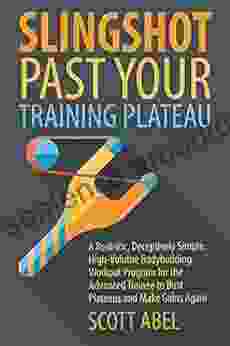
 Davion Powell
Davion PowellUnlock Your Muscular Potential: Discover the...
Are you tired of bodybuilding programs...
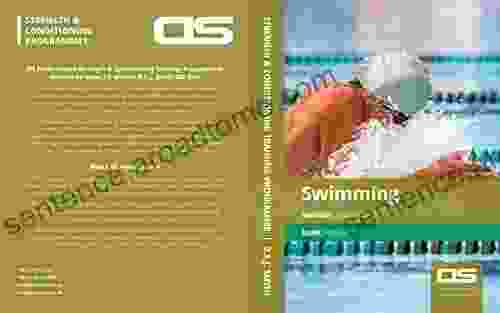
 Enrique Blair
Enrique BlairDominate the Pool: Conquer Performance with the DS...
As a swimmer, you...

 Christopher Woods
Christopher Woods"The Physics of Getting Out of Your Own Way": A Journey...
Break Free from...

 Milan Kundera
Milan KunderaWhat Really Sank The Titanic: New Forensic Discoveries
The sinking of the RMS...

 Ralph Waldo Emerson
Ralph Waldo EmersonUnveiling the Truth: Exposing the Hidden Dangers of Lyme...
In the realm of chronic illnesses, Lyme...
5 out of 5
| Language | : | English |
| File size | : | 496 KB |
| Text-to-Speech | : | Enabled |
| Screen Reader | : | Supported |
| Enhanced typesetting | : | Enabled |
| Print length | : | 15 pages |
| Lending | : | Enabled |


